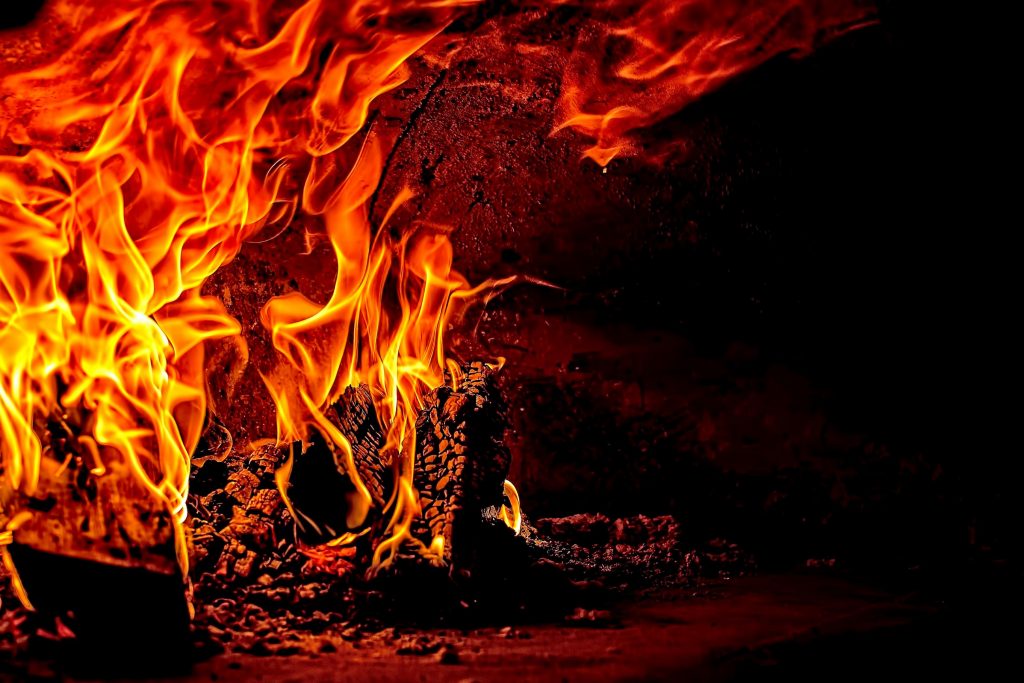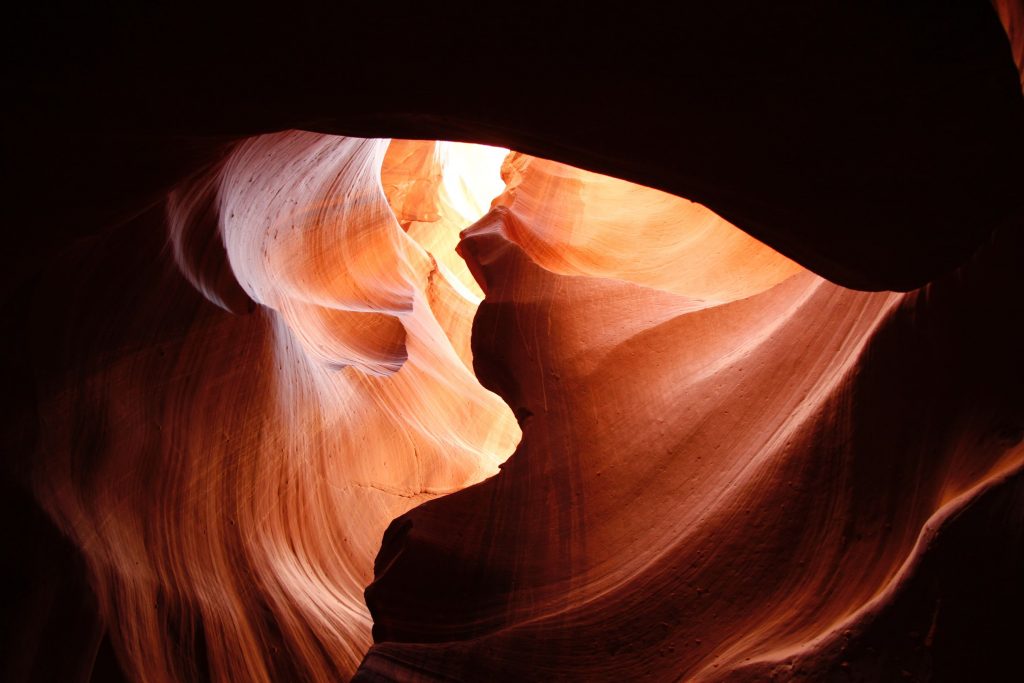Nitorina, gẹgẹbi ofin ikini – “Iwọ ko gbọdọ ni Ọlọrun miran pẹlu Mi.” Ti o ba ribẹ, aṣiṣọ gbaa ni ki a maa wipe: Ọlọrun Baba, Ọlọrun Ọmọ ati Ọlọrun Ẹmi Mimo. Nitoripe Ọlọrun ko pe mẹta, ọkansmṣosmṣo ni.
Jesu Kristi – ọmọ Ọlọrun ati Ẹmi Mimọ, iṣẹ ọwọ Ọlọrun ni awọn mejeji, OUN si ni Oluda wọn, ọdọ Rẹ ni awọn mejeji ti ṣan wa. Ọlọrun nikan ni Ẹni ti a koda. Ti a ba gbe aworan ila mẹta ti a kan papọ yẹwo (triangle), a o ri wipe:
Baba ni O wa li oke ṣonṣo aworan yi, Ẹmi Mimọ ati Jesu Kristi (ọmọ) li wọn wa ni apa osi ati apa ọtun li abẹ ṣonṣo oke yi. Eyi fi han wipe Ẹmi Mimo ati Jesu Kristi ko dọgba pẹlu Ọlọrun rara bi o tilẹ jẹ wipe awọn mẹtẹta nṣiṣẹ pọ, wọn si wọ inu ara wọn gẹgẹbi ọkan. Ibaṣepọ wọn duro laisi ifi ara gbara, tabi ijowu tabi ọtẹ. Ọlọrun nikan ni Oluda, O si da awọn meji iyoku lọla agbara ati aṣẹ Rẹ ti mbẹ ninu ỌRỌ fun Igbekele ati iselogo Remẹ nikan.
Eyi fi han pe, Ọlọrun Baba ngbe ninu Kristi ati Ẹmi Mimọ, bakanna ni Jesu Kristi ati Ẹmi Mimọ ngbe ninu Ọlọrun Baba (John 10 vs 38), ikana ni wọn lati atetekọṣe ki Ọlọrun to da aiye.
Nigba ti asiko to, O ran Jesu Kristi wa fun iṣẹ irapada, lẹhin ipari iṣẹ irapada ti Ọmọ Rẹ ṣe, O ran Ẹmi Mimọ wa lati tẹsiwaju nibi ti Jesu ti pari iṣẹ tirẹ. Ẹ jẹ ki a ṣe akiyesi eyi bakanna.
A o tẹsiwaju nissisiyi, lati gbe yẹwo, awọn apẹrẹ akọsilẹ lati inu iwe mimọ, paapaa awon ọrọ eyi ti o ti ẹnu Jesu Kristi jade ni igba ti o wa lode aiye, nipa titobi Ọlọrun alagbara julọ. Yooba bọ, wọn ni, a ko le mo otitọ ọrọ ju ẹniti ọrọ bẹẹ ti fọ jade.
Ekini – Matthew 28 : 18 – “Jesu si wá, o si sọ fun wọn, wipe, Gbogbo agbara li ọrun ati li aiye li a fifun mi.” Mo beere tani o fun Jesu Kristi ni agbara yi? Ko sa fun ara rẹ, abi? Bikoṣe Ọlọrun Baba Rẹ.
Ekeji – Johannu 10:36 – “Ẹnyin ha nwi niti ẹniti Baba yà si mimọ́, ti o si rán si aiye pe, Iwọ nsọrọ-odi, nitoriti mo wipe Ọmọ Ọlọrun ni mi?”
Jesu Kristi tikalarẹ fidi otitọ mulẹ pe Ọlọrun Baba rẹ li O ran oun wa gegebi ọmọ Ọkọrun.
Ẹkẹta – Marku 10:18 – Jesu si wi fun u pe, Ẽṣe ti iwọ fi npè mi li ẹni rere? ẹni rere kan ko si bikoṣe ẹnikan, eyini li Ọlọrun.” E yi tun fi han pe Ọlọrun nikan ni ẹni rere. Ti o ba jẹ pe Jesu Kristi ni Ọlọrun, oun ko ni sẹ ara rẹ pe ẹni rere kọ ni oun.
Ẹkẹrin: Matteu 16 vs 15 – 17 – “O bi wọn lẽre, wipe, Ṣugbọn tali ẹnyin nfi mi pè? Simoni Peteru dahùn, wipe, Kristi, Ọmọ Ọlọrun alãye ni iwọ iṣe. Jesu si dahùn o si wi fun u pe, Alabukun-fun ni iwọ Simoni Ọmọ Jona: ki iṣe ẹran ara ati ẹ̀jẹ li o sá fi eyi hàn ọ, ṣugbọn Baba mi ti mbẹ li ọrun.” Eyi fi han kedere pe ẹran ara ati ẹjẹ ninu ẹda enia le mu ọmọ enia ṣe se aṣiṣe lati pe Jesu ni Ọlọrun, ṣugbọn Ọlọrun ti kalarẹ nipa iranlọwọ Ẹmi Mimọ ni O fi otitọ ipo Jesu Kristi han Peteru. Otito yi ni Jesu Kristi tun fi idire mulẹ pe Oun ki iṣe Ọlọrun.
Ẹkarun – Matteu 26:39 – “O si lọ siwaju diẹ, o si dojubolẹ o si ngbadura, wipe, Baba mi, bi o ba le ṣe, jẹ ki ago yi ki o kọja kuro lori mi, ṣugbọn kì í ṣe bi emi ti nfẹ, bikoṣe bi iwọ ti fẹ.” Jesu Kristi nipa gbolohun yi tun fi idimulẹ otitọ pe Ọlọrun ni Baba rẹ ani alagbara julọ laiye ati lọrun.
Ẹkẹfa : kolosse 1, 13 – 15 – “Ẹniti o ti gbà wa kuro lọwọ agbara òkunkun, ti o si ṣi wa nipo sinu ijọba ayanfẹ ọmọ rẹ̀: Ninu ẹniti awa ni idande nipa ẹ̀jẹ rẹ̀, ani idariji ẹ̀ṣẹ: Ẹniti iṣe aworan Ọlọrun ti a kò ri, akọbi gbogbo ẹda:” Itumọ eyi ni wipe Ọlọrun ko ran ara Rẹ wa saiye, ọmọ Rẹ Jesu lo ran wa, ẹniti oun si ti jogun ijọba Rẹ fun bakanna gẹgẹbi akọbi gbogbo ẹda ọwọ Rẹ.”
Ekeje – Matteu 24:36 – “Ṣugbọn niti ọjọ ati wakati na, kò si ẹnikan ti o mọ̀ ọ, awọn angẹli ọrun kò tilẹ mọ̀ ọ, bikoṣe Baba mi nikanṣoṣo.” E yi tun fi han wa kedere pe, Jesu krisiti ki iṣe Ọlọrun bi bẹ kọ, yio mọ wakati tabi ọjọ naa.
Ẹkẹjọ : Johannu 14 : 28 – “Ẹnyin sá ti gbọ́ bi mo ti wi fun nyin pe, Emi nlọ, emi ó si tọ̀ nyin wá. Ibaṣepe ẹnyin fẹràn mi, ẹnyin iba yọ̀ nitori emi nlọ sọdọ Baba: nitori Baba mi tobi jù mi lọ.”
Bakanna, gbolohun ọrọ yi lati ẹnu Jesu Kristi tun fi han pe oun ki iṣe Ọlọrun.
Ẹkẹsan – Johannu 20:17 – “Jesu wi fun u pe, Máṣe fi ọwọ́ kàn mi; nitoriti emi kò ti igòke lọ sọdọ Baba mi: ṣugbọn lọ sọdọ awọn arakunrin mi, si wi fun wọn pe, Emi ngòke lọ sọdọ Baba mi, ati Baba nyin; ati sọdọ Ọlọrun mi, ati Ọlọrun nyin.”
Ẹkẹwa: Matteu 27 vs 45 – 46 : “Lati wakati kẹfa, ni òkunkun ṣú bò gbogbo ilẹ titi o fi di wakati kẹsan. Niwọn wakati kẹsan ni Jesu si kigbe li ohùn rara wipe, Eli, Eli, lama sabaktani? eyini ni, Ọlọrun mi, Ọlọrun mi, ẽṣe ti iwọ fi kọ̀ mi silẹ?”
Otitọ gbolohun lati ẹnu Jesu Kristi fi han kedere pe Ọlọrun nikan ni alagbara julọ, Ẹniti Jesu Kristi ke pe fun iranlọwọ ni ori igi agbelebu.
Ikọkanla: Romu 8:34 – “Tali ẹniti ndẹbi? Ihaṣe Kristi Jesu ti o kú, ki a sa kuku wipe ti a ti ji dide kuro ninu okú, ẹniti o si wà li ọwọ́ ọtun Ọlọrun, ti o si mbẹ̀bẹ fun wa?” Ẹ jẹ ki a ṣe akiyesi eyi bakanna.
Ekejila : Luku 23 v34 – “Jesu si wipe, Baba, darijì wọn; nitoriti nwọn kò mọ̀ ohun ti nwọn nṣe. Nwọn si pín aṣọ rẹ̀ lãrin ara wọn, nwọn di ìbo rẹ̀.”
Ẹkẹtala – Johannu 6 v 57 – “Gẹgẹ bi Baba alãye ti rán mi, ti emi si ye nipa Baba: gẹgẹ bẹ̃li ẹniti o jẹ mi, on pẹlu yio yè nipa mi.”
ẸKẹdogun: 1Korinti 11 : 3 – “Ṣugbọn mo fẹ ki ẹnyin ki o mọ̀ pe, Kristi li ori olukuluku ọkunrin; ori obinrin si li ọkọ rẹ̀; ati ori Kristi si li Ọlọrun.”
Li otitọ ati ni ododo Aposteli Paul fi han wa kedere pe Jesu Kristi ni olori, ẹniti iṣe Ọlọrun Baba Rẹ. Ni idi eyi ko gbọdọ si idi fun aṣiṣe laarin awọn ọmọ lẹhin Jesu Kristi pe oun ni Ọlọrun Alagbara julọ. Aṣisọ ni eyi.
ẸKẹrindinlogun – Matteu 3 vs 17 – “Si kiyesi i, ohùn kan lati ọrun wá, nwipe, Eyí ni ayanfẹ ọmọ mi, ẹniti inu mi dùn si gidigidi.”
Ohun Ọlọrun Baba Jesu Kristi li eyi. Eyi tun fi idi rẹ mulẹ pe Ọlrun lo ran Jesu Kristi ọmọ bibi Rẹ kanṣoṣo wa si ile aiye fun iṣẹ irapada.
Ẹkẹtadinlogun – Matteu 6 vs 9 – 13 – “Nitorina bayi ni ki ẹnyin mã gbadura: Baba wa ti mbẹ li ọrun; Ki a bọ̀wọ fun orukọ rẹ. Ki ijọba rẹ de; Ifẹ tirẹ ni ki a ṣe, bi ti ọrun, bẹ̃ni li aiye…..”
Mo bere to ba jẹ pe Jesu Kristi ni Ọlọrun, eeṣe ti oun ki nkọ ko awa enia lati ko ju si ẹlomiran loke lati gbọ ebe adura won, nigbati oun tikalarẹ wa pẹlu wọn ni asiko bẹ?
Enyin ara ati gbogbo awọn ọmọ lẹhin Kristi, ni ikadi ọrọ isiti yi, pelu gbogbo itọkasi wọnyi ko yẹ ki ariyanjiyan tabi aṣiṣe tabi aṣisọ tun maa fara han mọ nipa titobi Ọlọrun Alagbara. Jesu Kristi, Olugbala ati Oluwa wa ki iṣe Ọlọrun bikoṣe ọmọ bibi Rẹ kanṣoṣo ti o jọwọ ara rẹ lati wa si ile aiye lati mu iran enia pada si ọdọ Baba rẹ.
Aṣisọ patapata ni ki a ma wipe Ọlọrun di enia nipasẹ Jesu Krsiti. Eyi ti o nfi idimulẹ laarin ijọ Ọlọrun, bẹẹ ni awa kan nkọ eyi li orin ninu isin.
Fun imọ wa si, awọn ọmọ Ọlọrun jẹ mẹrindinlogun (16) ni iye, eyi ti Jesu Kristi jẹ ọkan ninu wọn. Ṣugbọn nitori iṣẹ iyebiye ti nṣe ti irapada awa ọmọ enia ti Jesu ṣe, ipo Jesu Kristi tayọ gbogbo awọn ọmọ Ọlọrun ti o ku.
Nigbati Olorun so wipe tali oun yio ran, tali yio lọ fun iṣẹ naa? Gbolohun yi, Ọlọrun dari rẹ si awon ọmọ Rẹ ni, ki iṣe si awọn angẹli Rẹ.
Gẹgẹbi awọn ọmọ Israẹli ti ṣe aṣiṣe ti wọn pe Mose ni Ọlọrun ni aginju nitori iṣẹ iyanu ti Ẹlẹda gba ọwọ rẹ ṣe, bakanna ni aṣiṣe awa ọmọ lẹhin Kristi ti ode oni ti a npe Jesu Kristi li Ọlọrun.
Ẹ jẹ ki a yara lati ṣe atunṣe nitoripe eyi ko dun mọ Jesu Kristi ninu rara, o nsi bẹbẹ fun wa niwaju itẹ aanu fun idariji lati ọwọ Baba rẹ nitoripe Ọlọrun ojowu ni Baba rẹ, ẹniti ki yio pin ogo Rẹ pẹlu ẹnikẹni.
Bakanna E ma ṣi mi gbọ, mi o ko iyan ọmọ Rẹ Jesu Kristi kere rara. Fun iṣẹ ribi ribi ti o ṣe, fun iṣẹ irapada ati igbala ti oun jogun fun iran enia, o yẹ ki a ma dupẹ gidigidi lọwọ rẹ, ki a si ma gbe ohun ati Baba rẹ ga. Ki Ọlọrun ki o ran wa lọwọ.
Ọlọrun Alagbara julọ ni, gbogbo ibi ni Oun wa, oju Rẹ si ka ohun gbogbo. Ko ni afiwe, ko lọga. Titobi Rẹ ko ṣe fi ẹnu sọ tabi ṣe apejuwe, bakanna Oun tikalarẹ li O ngbe inu emi ati iwọ. Ki Ọlọrun ki o bu si ọrọ Rẹ. Amin.









